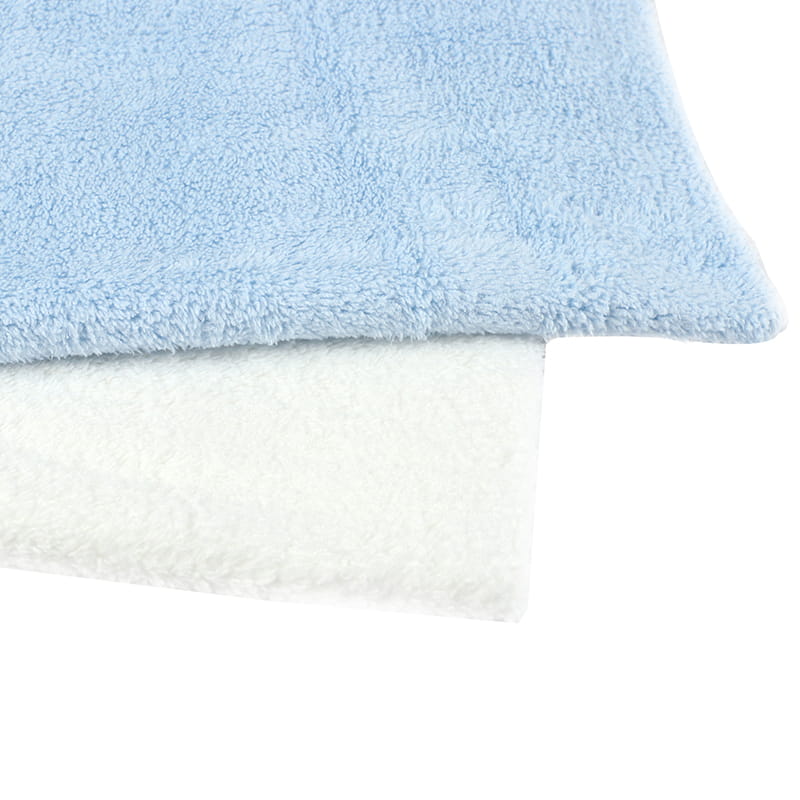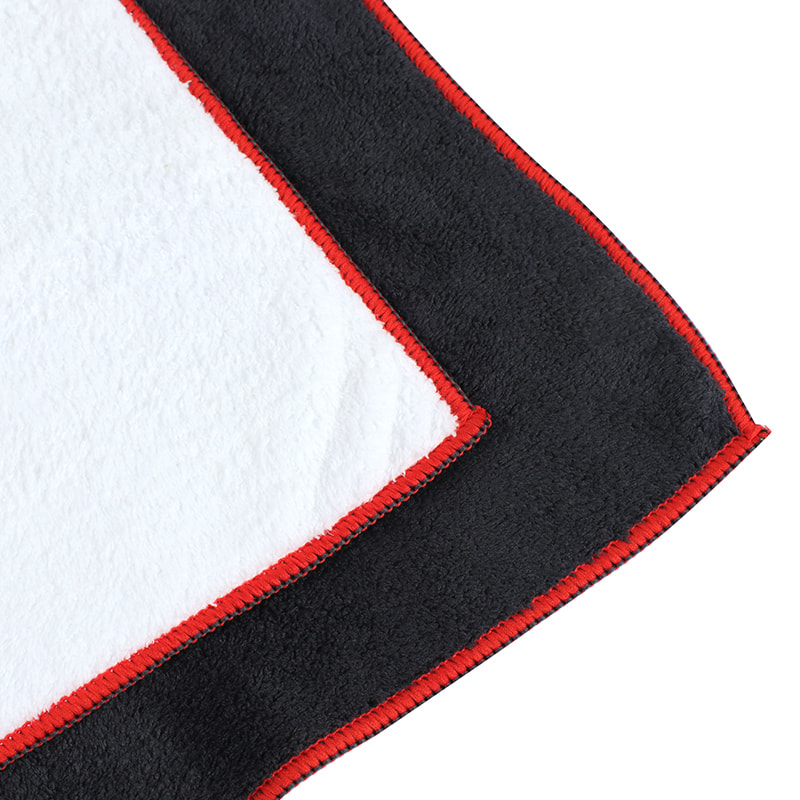We are a national high-tech enterprise. At present, there are many kinds of self-woven and cooperatively processed fabrics, including microfiber warp-knitted towel cloth, weft-knitted towel cloth, coral fleece, etc.
Preventing hand towels from getting moldy or producing a moldy odor involves a combination of proper use, care, and storage practices. Here are some effective strategies:
Frequent Washing: Regular laundering of hand towels is paramount for maintaining hygiene and preventing the accumulation of bacteria and mold. Research suggests that hand towels should ideally be washed every 3-4 days, as they can quickly become breeding grounds for harmful microorganisms if left unwashed for extended periods. Frequent washing not only removes dirt, oils, and germs but also eliminates moisture that fosters mold growth.
Thorough Drying: Ensuring hand towels are thoroughly dry before storage or reuse is crucial in mold prevention. Damp towels provide an ideal environment for mold spores to proliferate, leading to unpleasant odors and potential health hazards. Proper drying involves hanging towels in a well-ventilated area with sufficient airflow to expedite moisture evaporation. Consider utilizing heated towel rails or strategically placed hooks to enhance drying efficiency, especially in humid climates or during colder months when drying times may be prolonged.
Use High-Quality Detergents: Selecting high-quality detergents is essential for effectively removing dirt, oils, and bacteria from hand towels. Look for detergents specifically formulated to target stains and odors while preserving the integrity of the towel fibers. Additionally, incorporating natural additives such as white vinegar or baking soda into the wash cycle can enhance cleaning efficacy and neutralize odors. These eco-friendly alternatives not only eliminate bacteria but also help prevent the accumulation of soap residues that can attract mold.
Avoid Fabric Softeners: Fabric softeners, although popular for their ability to impart softness and fragrance to laundry, can compromise the absorbency and antimicrobial properties of hand towels. The waxy residues left behind by fabric softeners create a barrier on towel fibers, inhibiting moisture absorption and promoting bacterial growth. To maintain the functionality and longevity of hand towels, it's advisable to avoid using fabric softeners altogether or limit their use to occasional treatments.
Proper Storage: Proper storage plays a pivotal role in preventing mold growth on hand towels. Storing towels in a dry, well-ventilated environment is essential to mitigate moisture accumulation and microbial proliferation. Avoid storing towels in damp or poorly ventilated areas such as bathrooms cabinets or under sinks, as these conditions create an ideal breeding ground for mold. Instead, opt for open shelving or towel racks in well-ventilated spaces to promote air circulation and facilitate drying between uses.
Use Hooks or Racks: Utilizing hooks or racks for storing hand towels offers several benefits in mold prevention. Hanging towels allows for better airflow around the fabric, expediting the drying process and minimizing the risk of mold formation. Additionally, hanging towels individually prevents them from being stacked or folded, which can trap moisture and impede drying. Ensure adequate spacing between towels on racks or hooks to promote optimal air circulation and prevent moisture buildup.
Rotate Towels: Implementing a rotation system for hand towels is essential for distributing wear and tear evenly and preventing mold growth. Rotating towels ensures that each towel receives adequate drying time between uses, reducing the likelihood of residual moisture accumulation and microbial proliferation. Consider establishing a weekly rotation schedule to systematically alternate between clean towels, allowing ample time for drying and sanitization.
2PK 550GSM high density coral fleece car towel/sports towel/kitchen cleaning/bathroom cleaning


 English
English Espaol
Espaol русский
русский عربي
عربي 简体中文
简体中文
















